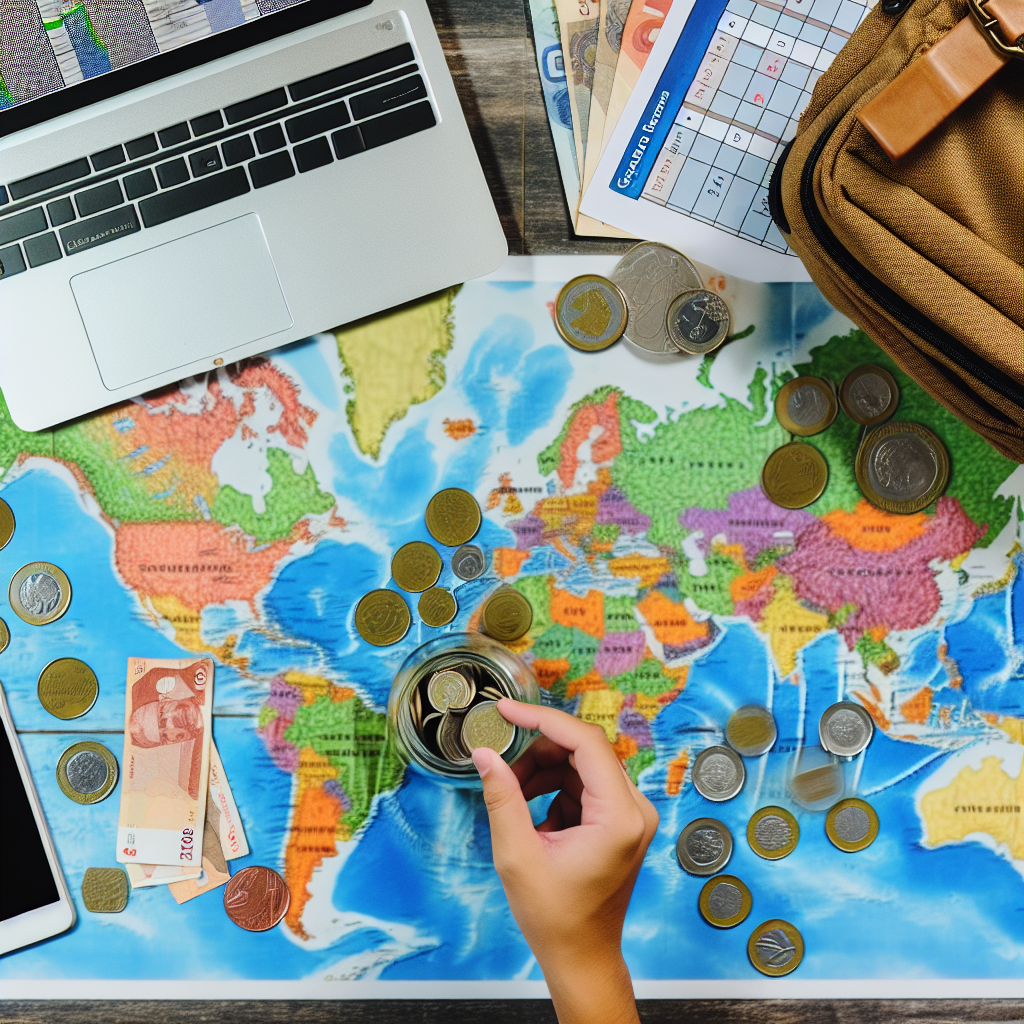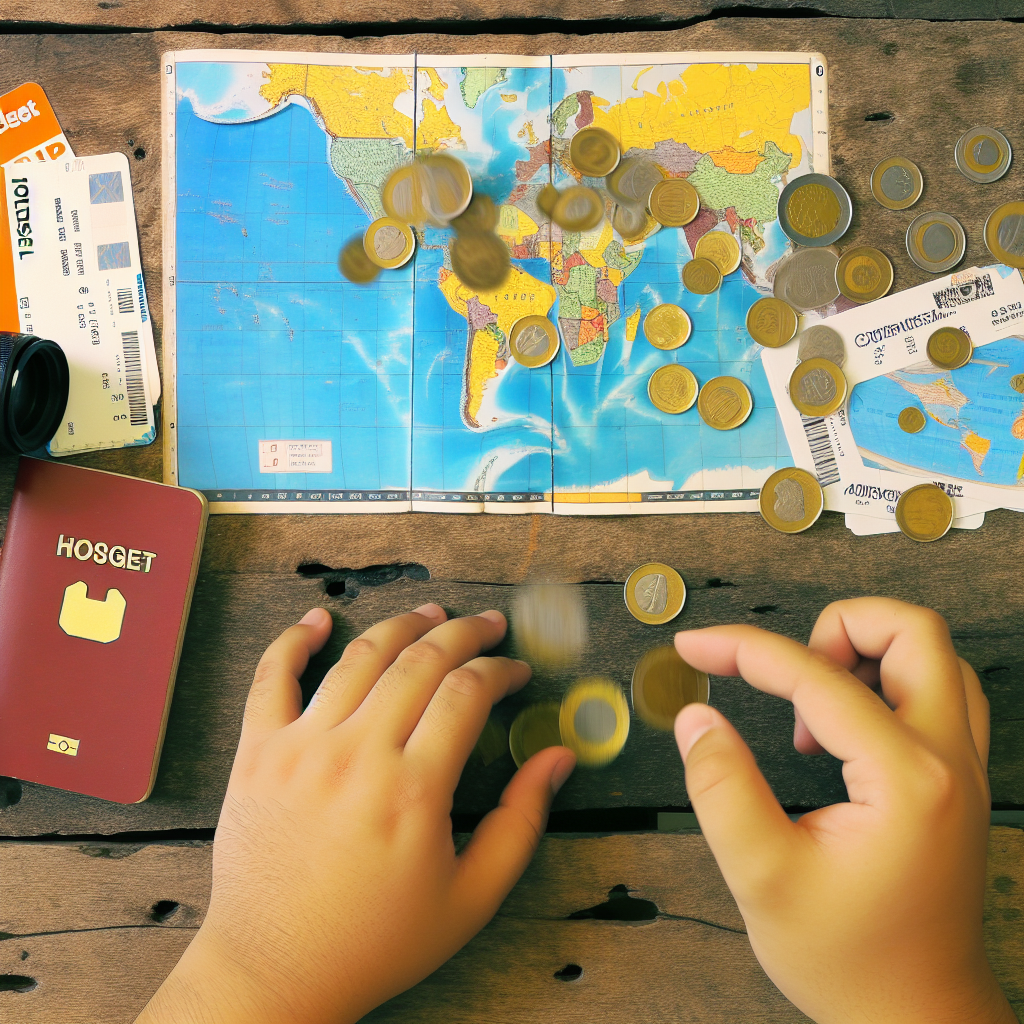-
Table of Contents
“Stay on Track: Master the Art of Budgeting while Traveling”
Smart Budgeting Tips for Travelers: Avoiding Overspending
Traveling is an exciting and enriching experience that allows us to explore new places, immerse ourselves in different cultures, and create lasting memories. However, it can also be a costly endeavor if we’re not careful with our spending. Overspending while traveling can quickly drain our bank accounts and leave us with a sense of regret. To help you stay on track and avoid overspending, we’ve compiled a list of smart budgeting tips for travelers.
First and foremost, it’s essential to set a realistic budget before embarking on your journey. Determine how much you can afford to spend on accommodation, transportation, meals, and activities. Research the cost of living in your destination and factor in any additional expenses such as visas or travel insurance. By having a clear budget in mind, you’ll be able to make informed decisions and prioritize your spending.
One of the most significant expenses when traveling is accommodation. While it’s tempting to splurge on luxurious hotels, consider more budget-friendly options such as hostels, guesthouses, or vacation rentals. These alternatives can provide a comfortable and affordable place to stay while allowing you to save money for other experiences.
Transportation is another area where overspending can easily occur. Instead of relying solely on taxis or rental cars, explore public transportation options such as buses, trains, or trams. Not only will this save you money, but it will also give you a chance to experience the local way of getting around. Additionally, consider walking or cycling for shorter distances, as it not only saves money but also allows you to discover hidden gems along the way.
When it comes to dining, eating out at restaurants for every meal can quickly add up. To save money, opt for local street food or visit local markets where you can find fresh and affordable produce. Not only will you get a taste of the local cuisine, but you’ll also be able to stretch your budget further. Additionally, consider packing snacks or having a picnic in a park, which can be a delightful and cost-effective way to enjoy a meal.
While it’s tempting to indulge in every activity and attraction your destination has to offer, it’s important to be selective to avoid overspending. Research and prioritize the experiences that truly interest you and align with your budget. Look for free or low-cost activities such as visiting museums on discounted days or exploring nature parks. Remember, it’s not about the quantity of activities but the quality of the experiences.
To avoid overspending, it’s crucial to keep track of your expenses. Use a budgeting app or keep a travel journal to record your daily spending. This will help you identify any areas where you may be overspending and allow you to make adjustments accordingly. Additionally, consider using cash instead of relying solely on credit cards, as it can help you visualize your spending and prevent you from going over budget.
Lastly, don’t forget to leave room for unexpected expenses. Emergencies or unforeseen circumstances can arise during your travels, and having a contingency fund will provide you with peace of mind. Set aside a portion of your budget for these situations, so you’re prepared for any unexpected costs that may arise.
By following these smart budgeting tips, you can avoid overspending while traveling and make the most of your journey. Remember, it’s not about depriving yourself of experiences but rather being mindful of your spending and making choices that align with your budget. With careful planning and a little discipline, you can have a memorable and financially responsible trip.
Top 5 Ways to Stick to Your Travel Budget and Save Money
Traveling is an exciting and enriching experience that allows us to explore new places, immerse ourselves in different cultures, and create lasting memories. However, it can also be quite expensive if we’re not careful with our spending. Overspending while traveling is a common pitfall that many people fall into, but with a little planning and self-discipline, it’s possible to stay on track and stick to your travel budget. In this article, we’ll explore the top 5 ways to avoid overspending and save money while traveling.
First and foremost, it’s essential to set a realistic budget before embarking on your trip. Determine how much you can afford to spend on accommodation, transportation, meals, and activities. Research the cost of living in your destination and factor in any additional expenses such as visas or travel insurance. By having a clear understanding of your financial limitations, you’ll be better equipped to make informed decisions and avoid overspending.
Once you’ve established your budget, it’s time to start planning your itinerary. Research the best deals on flights and accommodations, and consider traveling during off-peak seasons when prices are generally lower. Look for budget-friendly activities and attractions, and prioritize the ones that align with your interests. By planning ahead, you’ll have a better idea of how much money you’ll need for each day, allowing you to allocate your funds accordingly.
Another effective way to avoid overspending while traveling is to track your expenses. Keep a record of every penny you spend, whether it’s on meals, transportation, or souvenirs. This will help you identify any unnecessary or excessive spending and make adjustments as needed. There are numerous budgeting apps available that can assist you in tracking your expenses and staying within your budget. By being mindful of your spending habits, you’ll be able to make more conscious choices and avoid impulsive purchases.
In addition to tracking your expenses, it’s important to be mindful of your daily spending habits. Set a daily spending limit and stick to it. Avoid eating out for every meal and instead opt for local markets or grocery stores where you can buy fresh produce and prepare your own meals. Not only will this save you money, but it will also allow you to experience the local cuisine and culture in a more authentic way. Similarly, consider using public transportation or walking instead of relying on taxis or rental cars, as this can significantly reduce your transportation expenses.
Lastly, don’t be afraid to look for ways to save money on accommodations. Consider staying in budget-friendly accommodations such as hostels or guesthouses, or explore alternative options like house-sitting or couchsurfing. These options not only save you money but also provide unique opportunities to connect with locals and gain a deeper understanding of the destination.
In conclusion, staying on track and avoiding overspending while traveling is entirely possible with a little planning and self-discipline. By setting a realistic budget, planning your itinerary, tracking your expenses, being mindful of your daily spending habits, and exploring budget-friendly accommodation options, you can stick to your travel budget and save money. Remember, the goal is not to deprive yourself of experiences but rather to make conscious choices that allow you to make the most of your trip without breaking the bank. So go ahead, start planning your next adventure, and enjoy the journey while staying on track financially.
Traveling on a Budget: Effective Strategies to Prevent Overspending
Traveling is an exciting and enriching experience that allows us to explore new places, immerse ourselves in different cultures, and create lasting memories. However, it can also be a costly endeavor if we’re not careful with our spending. Overspending while traveling can quickly drain our bank accounts and leave us with a sense of regret. To help you stay on track and avoid overspending when traveling, we’ve compiled a list of effective strategies that will keep your budget intact.
First and foremost, it’s essential to set a realistic budget before embarking on your journey. Determine how much money you can comfortably spend on accommodation, transportation, meals, and activities. Research the cost of living in your destination and factor in any additional expenses such as visas or travel insurance. By having a clear understanding of your financial limitations, you’ll be better equipped to make informed decisions and avoid overspending.
Once you’ve established your budget, it’s time to start planning your itinerary. Research the attractions and activities you’re interested in and compare prices. Look for free or low-cost alternatives to popular tourist spots. Many cities offer free walking tours or have museums with discounted admission on certain days. By taking advantage of these opportunities, you can save money without compromising on the quality of your experience.
When it comes to accommodation, consider staying in budget-friendly options such as hostels or guesthouses. These establishments often offer affordable rates and provide an opportunity to meet fellow travelers. If you prefer more privacy, consider renting an apartment or booking a room through a home-sharing platform. These options can be more cost-effective than traditional hotels, especially if you’re traveling with a group.
Another effective strategy to prevent overspending is to be mindful of your food expenses. Eating out at restaurants for every meal can quickly add up, so consider cooking some of your meals or opting for street food. Not only will this save you money, but it will also allow you to experience the local cuisine in a more authentic way. Additionally, avoid eating in touristy areas, as prices tend to be inflated. Instead, venture off the beaten path and explore local markets or small eateries where you can find delicious and affordable meals.
Transportation is another area where overspending can easily occur. Research the most cost-effective ways to get around your destination. Public transportation is often cheaper than taxis or rental cars, so familiarize yourself with the local bus or subway system. If you’re traveling within a specific region, consider purchasing a multi-day or multi-destination pass, as these can offer significant savings. Additionally, walking or cycling can be a great way to explore a city while saving money on transportation.
Lastly, it’s crucial to be mindful of your spending habits while traveling. It’s easy to get caught up in the excitement of being in a new place and overspend on souvenirs or unnecessary items. Before making a purchase, ask yourself if it’s something you truly need or if it’s just a fleeting impulse. Consider setting a daily spending limit and track your expenses using a budgeting app or a simple notebook. By keeping a close eye on your spending, you’ll be able to identify any areas where you may be overspending and make adjustments accordingly.
In conclusion, staying on track and avoiding overspending when traveling is entirely possible with the right strategies in place. By setting a realistic budget, planning your itinerary wisely, being mindful of your food and transportation expenses, and tracking your spending, you can enjoy your travels without breaking the bank. Remember, it’s not about how much money you spend, but rather the experiences and memories you create along the way.






